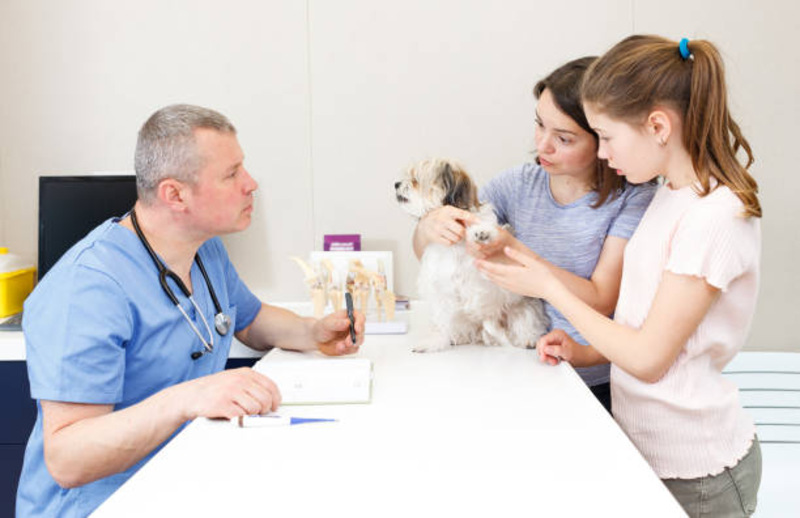Have you ever taken your pet to the vet, only to find out that their injury or problem needs costly and lengthy treatment? Or maybe you've sadly faced a pet health emergency with heightened stress due to finances. If this is the case – or if it isn't but you're interested in seeking more protection for your beloved animals – then pet insurance may be worth exploring. In this blog post, we explore how exactly pet insurance works so that you can decide if it's right for both you and your pets.
Pet Insurance and its Benefits:
Pet insurance is a type of coverage that helps cover the costs of certain pet health needs. Generally, these policies provide payment for some or all of the veterinary bills associated with treatment and care of your pet’s injury or illness. Pet insurance also offers peace of mind in the event an unexpected accident or illness occurs.
The amount of coverage you receive with pet insurance depends on the policy, your pet’s breed and age, and the costs associated with treatment. On average, most policies will cover up to 70 percent of veterinary bills associated with an illness or injury. However, some plans may provide more comprehensive coverage that can cover up to 90 percent of vet bills.
Typed of Pet Insurance Policies of Coverage Available for Pets :

There are a few different types of insurance policies that pet owners may choose from. The most common type is an accident and illness policy, which covers your pet’s vet bills in the event they become sick or injured due to an unexpected incident. This type of coverage usually comes with a deductible and co-payments that you will need to pay when seeking treatment for your pet. There are also wellness plans, which cover preventive care such as vaccinations and routine check-ups
There are policies that can help cover the cost of boarding if you are unable to take care of your pet due to an emergency or extended medical absence. All these policies can be tailored to fit the needs of both you and your pet.
Deciding if Pet Insurance is Right for You:
Deciding whether or not to invest in pet insurance can be a difficult decision. It’s important to consider the costs of treatment, as well as your financial situation when deciding on an appropriate policy for your pet.
Before you commit to a policy, make sure you understand and agree with the terms outlined in the insurance agreement. Also, be sure to read reviews of any company you’re considering purchasing a policy from so that you can rest assured that they are reputable and offer quality customer service. Ultimately, pet insurance is an important decision and should not be taken lightly.
What is Covered and the Exclusions?

It is essential to read your policy thoroughly in order to understand what types of medical treatments and services are covered. Typically, pet insurance policies will exclude pre-existing conditions, as well as any costs associated with routine care like vaccination boosters or flea/tick prevention. It’s important to be aware of these exclusions before purchasing a policy so that you can make sure your pet is getting the coverage they need.
Being Prepared for Emergencies:
No one likes to think about their pet becoming injured or, but it’s important to be prepared in case of an emergency. If you do decide to invest in pet insurance, make sure that you have all the necessary paperwork filled out and ready in the event of an emergency. This will help expedite the process and make sure that your pet is able to get the treatment they need as quickly as possible.
Making a Claim on Your Pet Insurance Policy:
When filing a claim on your pet insurance policy, you will typically need to provide the following information: your pet’s medical records, detailed veterinary bills (including itemized costs), and any other supporting documentation that describes why the treatment was necessary. Once all of this is submitted, it can take anywhere from a few days up to several weeks for the claim to be processed and for you to receive payment.
To make sure that your claim is processed quickly and efficiently, it’s important to file the paperwork as soon as possible after seeking treatment for your pet. This will help ensure that you get reimbursed in a timely manner so that you can get back to focusing on what’s most important – taking care of your pet.
Comparing Different Pet Insurance Companies to Get the Best Deal:
It's important to compare different pet insurance providers in order to find the best deal and coverage for your pet. When comparing different companies, look out for things like their customer service ratings, prices, deductibles and co-pays, as well as any additional benefits they may offer.
Conclusions:
Pet insurance can be a great way to protect both you and your pet from unexpected costs that come with treating an injury or illness. While it’s important to pay attention to the coverage and exclusions of each policy, taking the time to understand how pet insurance works and what types of policies are available can help you make an informed decision that best meets the needs of both you and your pet. Taking the time to research different companies and compare policies can also help ensure that you are getting the best deal for your money. By doing the necessary groundwork, you can be sure that both you and your pet are covered in case of an unexpected accident or illness.
FAQs:
Q: How much does pet insurance cost?
A: The cost of pet insurance varies depending on the type of policy you choose and the breed/age of your pet. Generally, policies start at around $30 a month but can go up to several hundred dollars depending on your pet’s needs.
Q: What is typically covered under a pet insurance policy?
A: Most policies will cover up to 70 percent of veterinarian bills associated with an illness or injury. Some plans may provide more comprehensive coverage that can cover up to 90 percent of vet bills. Policies typically exclude pre-existing conditions, as well as any costs associated with routine care like vaccinations and flea/tick prevention.











